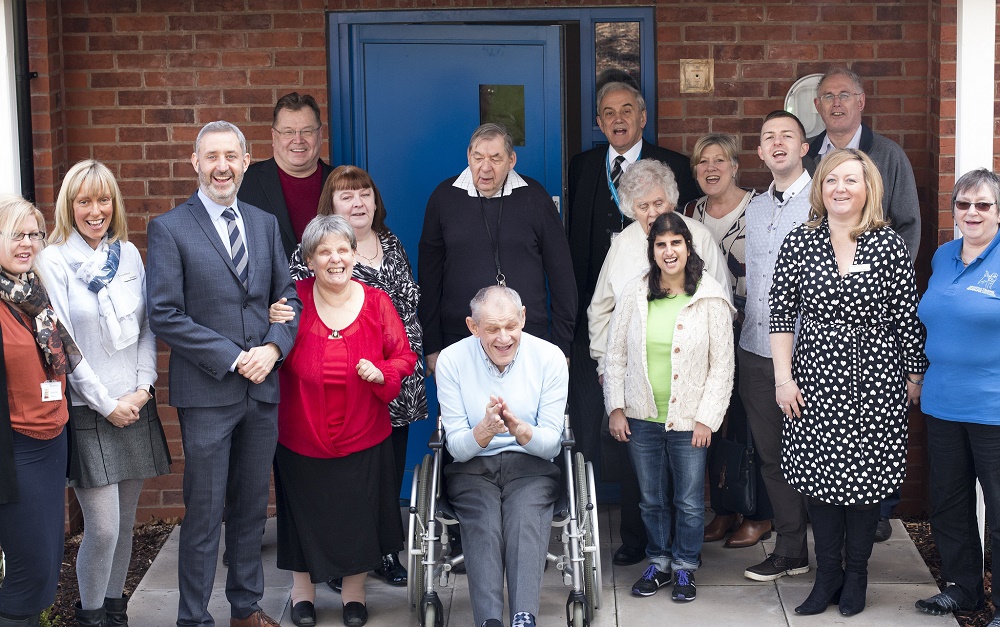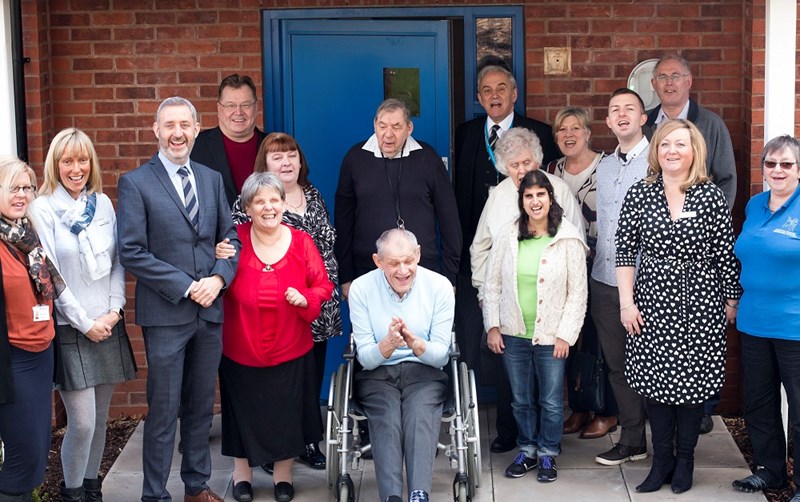
MyPlace, your place, our place
The content in this article may now be out of date. Please try searching for a more recent version.
 MyPlace is about raising aspirations for someone with a learning disability or mental health need by giving them the chance to take control of their life, live independently, harness opportunities and reduce dependency. Here John Wade, director at Bromford, talks about how MyPlace contributes to building strong, caring communities.
MyPlace is about raising aspirations for someone with a learning disability or mental health need by giving them the chance to take control of their life, live independently, harness opportunities and reduce dependency. Here John Wade, director at Bromford, talks about how MyPlace contributes to building strong, caring communities.
Everyone has very different needs, wants, hopes and dreams but it’s probably safe to say that most of us share certain expectations – to live a happy, safe and secure life where we are accepted, understood and have the same opportunities as everyone else.
Too many people make judgements based on what they’ve heard, what they've read in the papers and what they think they know. This means that some people, especially those with a learning disability or mental health needs can be dismissed as not being able to live ‘normal’ lives. The misconception that they are unable to be a valuable part of a community, or that they are somehow a danger to those around them is one that needs to be challenged at every opportunity.
When I was working for a mental health charity a few years ago I was involved in the opening of a new housing scheme. Before opening we received quite a hostile reaction from some of the neighbours with one person in particular being extremely vocal about his objections. He didn’t want to listen to reason, he’d made his mind up about his new neighbours before even meeting them – he’d believed the negative headlines!
I remember going to the scheme shortly after it opened and being surprised to meet the disabled wife of the hostile neighbour coming out of the scheme. I asked if everything was OK and she smiled and said everything was great. She’d had trouble opening a tin of beans so went round to see if one of the residents might be able to help out; and they had. This small act spoke volumes. Clearly the barriers had started to come down and she no longer saw her new neighbours as something to be feared. Now they were people, with names and were part of her community.
We only get to know people by spending time with them and treating them as individuals. By carefully choosing MyPlace sites so that they will be part of an established community we’re giving people the opportunity to embrace the differences between us; to discover the contribution that each individual can make and to start to dispel many of the myths associated with people with a learning disability or mental health need.


Karen Lumley, MP getting to know Christopher
Most of the MyPlace schemes we have developed are for people with a learning disability. Customers tend to have come from one of three different backgrounds.
Some have lived in a care home where they would have had limited say over many aspects of their daily life - their routine, the activities they’d been able to get involved in, their food choices and meal times. So they have often had little chance to take risks, experiment, learn and grow – to find out what they really like and what they are really capable of.
Another group have never left the family home. They are adults and may be in their 50s, but their parents can still be very protective and anxious about what the future might hold – particularly when they are no longer here to protect their vulnerable ‘child’. They may have had limited opportunities to develop life skills or learn how to navigate the world around them on their own.
A final group of MyPlace customers have often been struggling on their own in the community. They have often lived in poor quality housing, where they are isolated, at risk of being bullied or exploited and have had limited access to help or support.
For a lot of our customers the lack of basic life skills such as cooking, budgeting and staying safe when going out and about is a common theme. So a certain level of social care is often needed when they first move in to their MyPlace apartment. But we’ve found that most people soon grow in confidence after moving in and can quickly reduce the level of care they need. Even some of those who have spent years in residential care can reach the point where they no longer need any care at all. This is great for local authorities (and the tax-payer) as it makes MyPlace a much cheaper and more efficient option when compared to care homes where the level of care is likely to stay the same, or even increase, over time.


Millward Place, Birmingham
Moving into a MyPlace scheme can be a little daunting at first. But most customers soon find that it is a really exciting and liberating experience. Perhaps for the first time ever they can be themselves. They have their own front door, their own space and a tenancy agreement that gives them the rights and protection we all take for granted.
The self-contained apartments provide a springboard to enable people to blossom and flourish in a safe and secure space. Free to come and go as they please, they can build new friendships, make their own decisions, explore activities that interest them and share their life experiences with others who understand. In short, they are given options that enable them to make informed choices about how they want to live their lives.
They can become active members of their community on their own terms. They can learn new skills, work, volunteer, go to the pub, develop relationships, join a church, go shopping, meet friends - the list goes on and on. The point is that these are ordinary, everyday things that most of us take for granted – so why shouldn’t people with a learning disability be able to do them too?
I see Bromford’s role as one of facilitator. We have a housing enabler on site most days to help with any tenancy related issues and to help coordinate visitors and care providers but we aim to be very much in the background – quietly getting to know our customers and their community and helping connect people up so that they can make the most of whatever opportunities appeal to them.
The new friendships that develop at a MyPlace scheme and the opportunity for customers and communities to start to understand each other’s strengths, talents and vulnerabilities really encourage people to come together to nurture and look out for one another. In times of increased pressure on public services like health and social care, creating strong, supportive communities is key to the future wellbeing of everyone and MyPlace can play a big part in making this possible.
Samuel Place
Samuel Place
Millward Place
Millward Place
Director of Strategy at Bromford - Exploring strengths based approaches to social change.
More from John